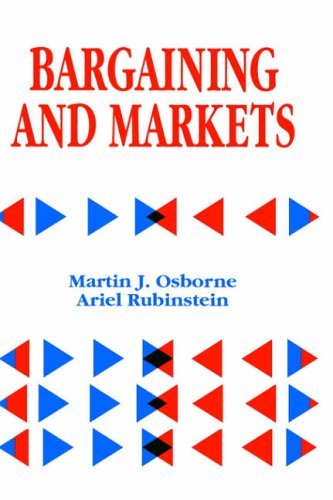Items related to Bargaining and Markets (Economic Theory, Econometrics,...

Synopsis
The formal theory of bargaining originated with John Nash's work in the early 1950s. This book discusses two recent developments in this theory. The first uses the tool of extensive games to construct theories of bargaining in which time is modeled explicitly. The second applies the theory of bargaining to the study of decentralized markets.Rather than surveying the field, the authors present a select number of models, each of which illustrates a key point. In addition, they give detailed proofs throughout the book.
"synopsis" may belong to another edition of this title.
Review
"This is a well written book on an important topic. Everyone should run out and buy a copy."
--GAMES AND ECONOMIC BEHAVIOR
"Osborne and Rubenstein's authoritative book represents a landmark in the evolution of bargaining theory. Future research in the field will undoubtedly take the ideas presented in this book as a starting point. Accordingly, it should be read and digested by anyone with a serious interest in formal models of the bargaining process."
--CANADIAN JOURNAL OF ECONOMICS
"About this title" may belong to another edition of this title.
(No Available Copies)
Search Books: Create a WantCan't find the book you're looking for? We'll keep searching for you. If one of our booksellers adds it to AbeBooks, we'll let you know!
Create a Want
